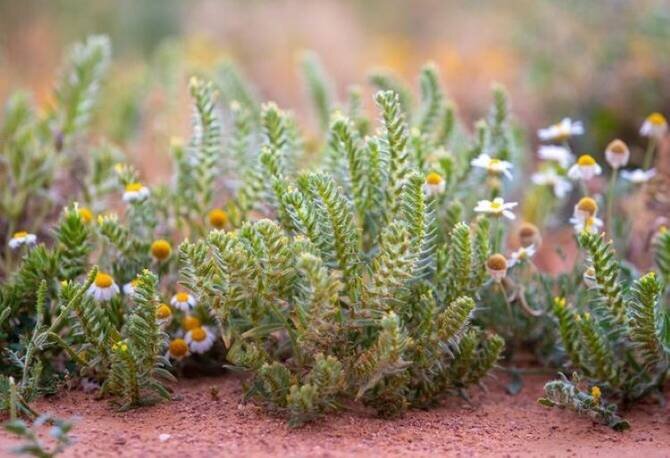
NCVC Plants 100 Million Seedlings in Al-Jouf to Boost Vegetation Cover
The National Center for Vegetation Development and Combating Desertification has recently launched an initiative to expand vegetation cover across Saudi Arabia, with a focus on the Al-Jouf province.
Riyadh – In a significant move aimed at increasing vegetation cover in Saudi Arabia, the National Center for Vegetation Development and Combating Desertification (NCVC) has successfully planted 100 million seedlings in the Al-Jouf province.
This large-scale planting is part of broader efforts to combat desertification, stabilize soil, absorb carbon dioxide, and provide habitats for various bird species.The initiative encompasses the planting of saltbushes, mugworts, Acacia etbaica, and Calligonum comosum – plant species known for their resilience in harsh and arid environments.
These plants are crucial in promoting ecological balance and supporting biodiversity.The Al-Jouf region has been a focal point for such initiatives due to its environmental challenges and the need for sustainable development.
The NCVC's efforts are part of Saudi Arabia's commitment to enhance greenery as outlined in the national Saudi Green Initiative.Moreover, the NCVC is dedicated to environmental preservation and the conservation of natural treasures.
This year marks the start of their National Greening Season 2025, an initiative that emphasizes the importance of native plant species, raises awareness about environmentally harmful practices, and encourages community involvement through volunteer work.The afforestation project has already seen successful implementation across various locations in Al-Jouf.
Notably, at the Al-Tamriyat Field Experiment and Wild Seed Production Station as well as the Basita Pasture Seed Production Station, NCVC has planted 19 different species to facilitate the production of seeds for rehabilitating degraded lands throughout Saudi Arabia.Additionally, the NCVC's planting season has extended to other nature reserves across the country.
For instance, the King Salman bin Abdulaziz Royal Reserve Development Authority collaborated with volunteers from Al-Asafiyah Center in Tabuk to plant 2,000 seedlings.
These collaborative efforts demonstrate the broader impact of the NCVC's work and highlight the potential for community involvement in environmental conservation.The commitment demonstrated by the NCVC, both through large-scale planting initiatives and community partnerships, showcases a comprehensive approach to vegetation development and desertification control.
This strategy not only addresses immediate environmental challenges but also contributes to long-term sustainability objectives.
This large-scale planting is part of broader efforts to combat desertification, stabilize soil, absorb carbon dioxide, and provide habitats for various bird species.The initiative encompasses the planting of saltbushes, mugworts, Acacia etbaica, and Calligonum comosum – plant species known for their resilience in harsh and arid environments.
These plants are crucial in promoting ecological balance and supporting biodiversity.The Al-Jouf region has been a focal point for such initiatives due to its environmental challenges and the need for sustainable development.
The NCVC's efforts are part of Saudi Arabia's commitment to enhance greenery as outlined in the national Saudi Green Initiative.Moreover, the NCVC is dedicated to environmental preservation and the conservation of natural treasures.
This year marks the start of their National Greening Season 2025, an initiative that emphasizes the importance of native plant species, raises awareness about environmentally harmful practices, and encourages community involvement through volunteer work.The afforestation project has already seen successful implementation across various locations in Al-Jouf.
Notably, at the Al-Tamriyat Field Experiment and Wild Seed Production Station as well as the Basita Pasture Seed Production Station, NCVC has planted 19 different species to facilitate the production of seeds for rehabilitating degraded lands throughout Saudi Arabia.Additionally, the NCVC's planting season has extended to other nature reserves across the country.
For instance, the King Salman bin Abdulaziz Royal Reserve Development Authority collaborated with volunteers from Al-Asafiyah Center in Tabuk to plant 2,000 seedlings.
These collaborative efforts demonstrate the broader impact of the NCVC's work and highlight the potential for community involvement in environmental conservation.The commitment demonstrated by the NCVC, both through large-scale planting initiatives and community partnerships, showcases a comprehensive approach to vegetation development and desertification control.
This strategy not only addresses immediate environmental challenges but also contributes to long-term sustainability objectives.